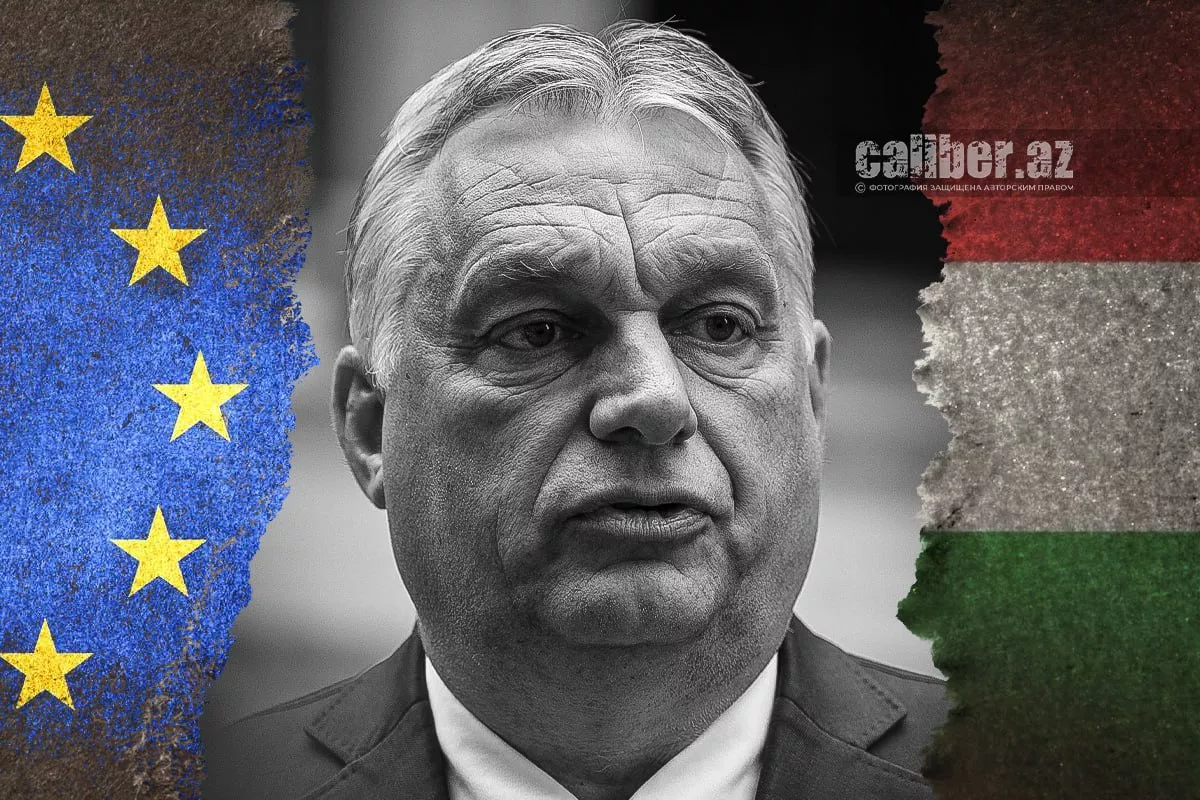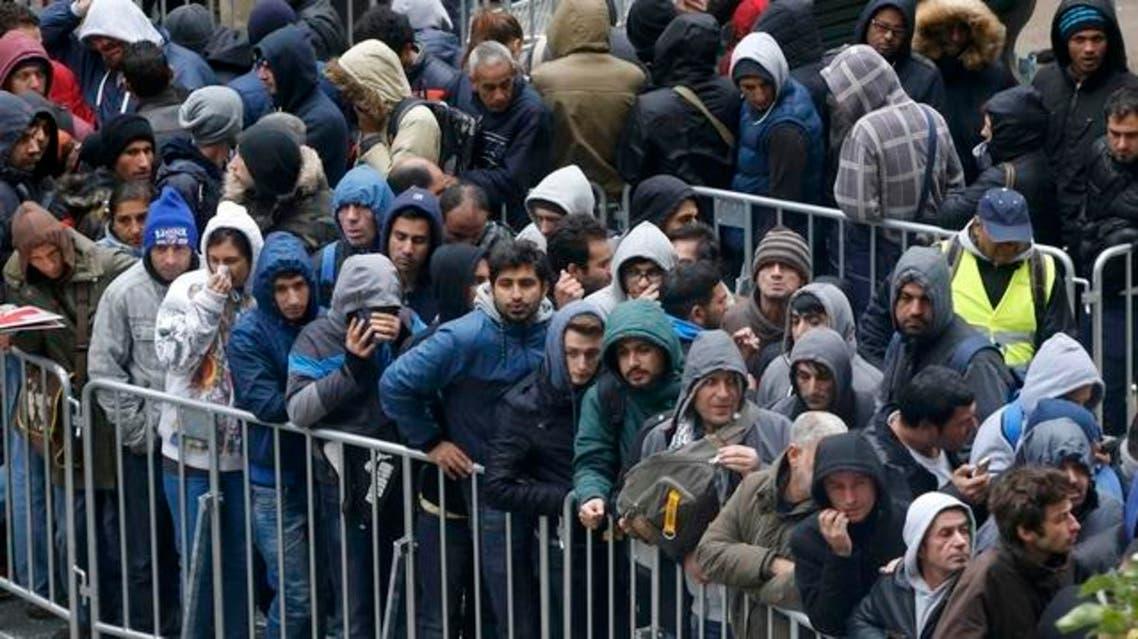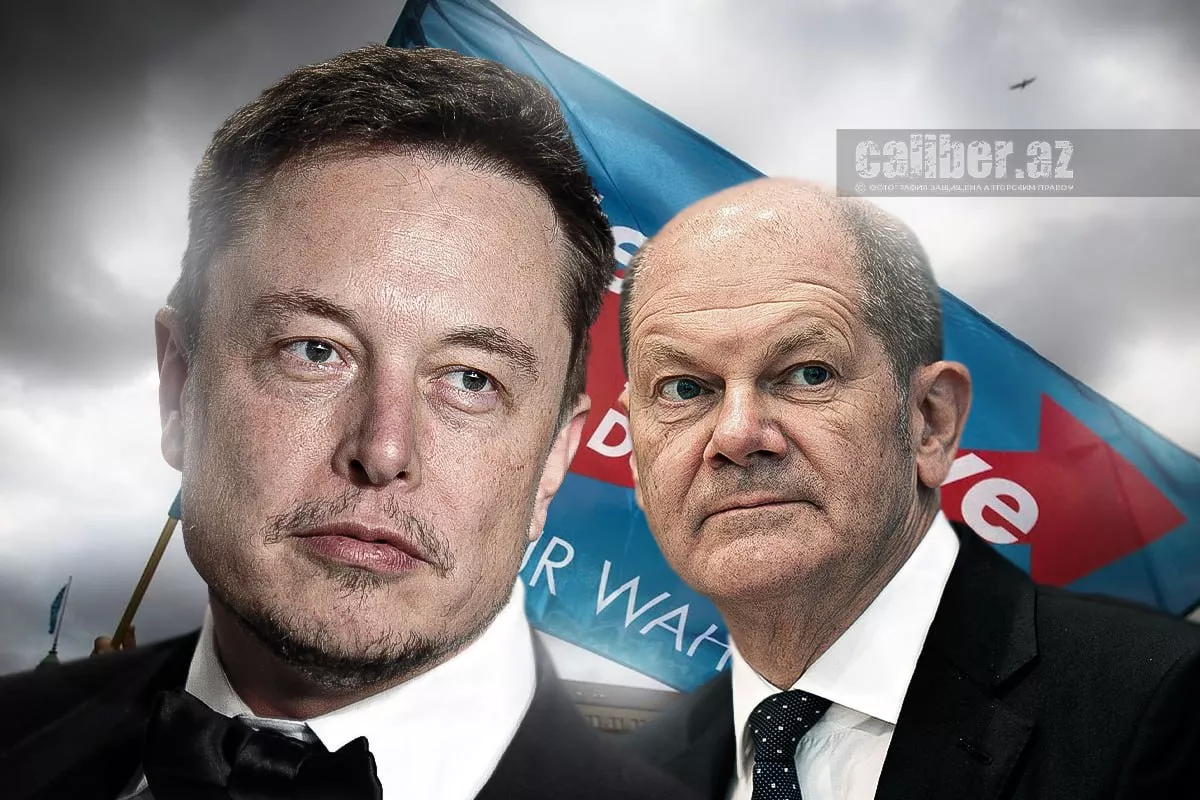Far-right "perestroika" in Europe US supports the change amid liberal decline
On January 9, the Armenian government solemnly approved the bill for joining the European Union. In making this decision, Prime Minister Pashinyan followed liberal dogma rather than a realistic, calculated political approach, as he took this step amid a situation where both the EU and its liberal elites are wavering and losing ground.
The new U.S. President, Donald Trump, even demonstratively excluded EU leadership from his inauguration. His administration is betting on a major "perestroika" (restructuring) within the European Union, which will be spearheaded by rising far-right forces. While there are doubts about the competence of these forces, the liberal establishment in the EU is still unable to meet the challenges thrown its way and is only attempting to continue the previous course in its militarized version.
Spirit of the time
For a long time, the parties of the liberal establishment in European countries pursued a policy of boycott towards their non-systemic competitors—refusing any deals to allow them participation in governance, despite the support they had gained from voters. This was coupled with a corresponding policy of "content filtering" in the media. Recently, Mark Zuckerberg even referred to the EU as a place where a "number of laws institutionalizing censorship and making it difficult to build anything innovative there." Of course, considering the number of irresponsible and outrageous ideas promoted by some alternative movements, this was sometimes quite logical. But there is a limit to everything, and the public has long suspected that not only extreme content is being filtered.
In general, the boycott tactic began to fail in the last one and a half to two years, as the "old" intra-systemic parties lost the ability to convince voters of their correctness. Now, far-right, and in reality, more accurately, counter-elite parties have entered the governments of eight EU countries or even formed them. Among them are influential states from "old Europe" such as Italy, the Netherlands, and Austria, as well as several countries in the east of the continent—starting with Hungary (which has been led by Viktor Orban since 2010) and extending to Croatia, the Czech Republic, Finland, and Slovakia.

The popularity of such parties has notably increased in other countries as well—this became widely discussed not only after their victories in last year’s European Parliament elections. In Spain, they received four times more votes than in the previous election—18%. In Romania, the far-right gained the support of about 30% of voters in December, and an independent candidate close to them, Călin Georgescu, nearly won the presidential election—his bid was halted by the Constitutional Court, which suddenly annulled the results, citing "hybrid actions" from Russia.
But the main story is that the Alternative for Germany (AfD) consistently holds second place in public opinion polls in Germany. In September, they nearly won elections to two regional parliaments, and they are guaranteed to become one of the leading political parties at the national level after the elections in February. The only intrigue now is the exact margin by which they will achieve this. And how much longer will the "old parties" be able to continue boycotting the AfD?
By the way, at the EU level, the boycott no longer exists. As a result of the June European Parliament elections, two far-right alliances became the third and fourth largest factions, and European Commission President Ursula von der Leyen, whose position had been shaky ahead of her reappointment, was ready to collaborate with them. To facilitate this, relations with the Italian government of Giorgia Meloni were swiftly smoothed over—her party was no longer labelled far-right, nor was there any mention of its historical ties to Mussolini.
Liberal sabre-rattling
"The far-right is establishing itself in the mainstream," are the concerns of liberal establishment politicians in the EU, alluding to the Nazi precedents in European history. Perhaps nationalists, Nazis, and fascists are already marching with torches, preparing to wreak havoc on their opponents? But that's not the case. Instead, we are talking about parties that are challenging the politically monopolized field of liberal parties of various shades of the same colour. At the same time, liberal parties themselves are equally undermining established political regimes in their countries with their radically revisionist programs, which do not have the support of the majority.
It is difficult to talk about the "far-right" in this case due to the ideological confusion and diversity of these movements. Moreover, they exhibit fundamental contradictions with traditional nationalist goals. A number of these new counter-elite parties are against war, against the EU's involvement in conflict with Russia (and some also with China), and oppose militarization. They advocate for the end of sanctions policies that are tearing apart both the European continent and the global economy.
On the other hand, so-called moderate establishment parties, relying on a shrinking minority of society, continue to insist on the liberal imperative—the need for a global "jihad" for liberal values, active participation in the conflict in Eastern Europe, opposition to Russia and China, and the militarization of society and the state.
Recently, Robert Habeck, the Green Party's candidate for Chancellor of Germany and current Minister of Economy and Vice-Chancellor, called for nearly doubling Germany's military spending to 3.5% of GDP. This comes despite the fact that Germany was only able to meet NATO's current military spending target of 2% by increasing its national debt. Habeck himself recently admitted that Germany's economy last showed growth in 2018, under Chancellor Merkel.
Increasing Germany’s military spending could be achieved by cutting pensions and social benefits—as the new NATO Secretary-General unabashedly advocates—but Habeck has a different idea. He proposes that the German government borrow even more money (nearly one hundred billion euros), which de facto means revising the prohibitions on increasing government debt that are enshrined in Germany’s constitution! So, who then appears to be the radical, undermining the foundations of the constitutional order: the "Green" pushing for a revision of the constitution and radical militarization of the country (also in violation of constitutional norms), or the AfD, which calls for peaceful solutions in Europe, overcoming the confrontation with Russia and China, and restoring the economy by re-establishing the international connections destroyed by sanction policies?
Another clear distinction between today’s parties and traditional nationalists is the role of the state. In a conversation with Elon Musk, one of the AfD leaders, Alice Weidel, stated that her party is "libertarian-conservative" and emphasized reducing taxes for businesses and cutting government involvement. Meanwhile, far-right nationalist parties have always advocated for the opposite—a strong state capable of mobilizing citizens and business resources to fight "for a place under the sun."
A new discourse emerges
"The far-right discourse is becoming part of the political mainstream in Europe," liberal commentators either express outrage or lament. But what exactly are these counter-elite parties, which have been undermining the foundations of the Western political scene for the past three decades, actually saying? If we are talking about the countries of "old Europe," they primarily discuss more pragmatic approaches—moving away from the sanctions policy and seeking solutions to national economic problems, including the potential abandonment of the euro and a revision of the Schengen zone regime. They talk about greater independence for European countries from the United States, as well as rejecting the monstrous bureaucratic structures in Brussels. They talk about striving for peace and the necessity of avoiding conflict with Moscow and Beijing without particular reason. And yes, they talk about the need to control migration.
Which of these ideas have made it into the mainstream discourse? Not much so far. But trends are evident in how strict migration control has suddenly become an issue that even liberal politicians are now fighting for, alongside the counter-elite parties. Last year, even the ruling left-liberal Social Democrats in Germany moved towards tightening migration and asylum policies. This is not widely discussed, but the Schengen zone itself is also under question—Germans, not trusting the Polish authorities, have begun to control entry into their territory.

Is this a "revival of Nazism," as some hint when discussing the danger posed by the AfD? Of course, elements of racism and xenophobia are present in these sentiments. However, the main factors that are forcing the authorities to adopt these measures are public dissatisfaction due to a lack of security, catastrophic labour market phenomena caused by pseudo-liberal migration policies, and the basic disorder in the streets. And these are not abstract concepts—let's take a look at a couple of examples for each point.
The lack of security was demonstrated by a recent terrorist attack in Magdeburg, where a Saudi man, allegedly persecuted for his beliefs in his home country, drove his car into a crowd at a Christmas market. It later emerged that Saudi security authorities had tried to warn their German counterparts about the attacker’s instability, but for their own reasons, the Germans ignored the warning—likely because it came from a non-democratic and illiberal regime. As a result, six dead and three hundred wounded.
More and more residents of Germany are facing catastrophic issues in the labour market. In construction, for example, the market is flooded with companies run by Eastern European immigrants, who employ workers that work for months without any days off, from dawn till dusk—forget about taking a vacation. Naturally, the documentation is either forged or non-existent, and the quality of work reflects this. As a result, the market is broken, and competition is driving down quality and pushing workers into an inhumane state of exploitation.
Construction, of course, is not the only affected sector—healthcare is also struggling, particularly at the grassroots level, where there is an abundance of staff with barely any command of the German language (let alone English). Meanwhile, the government is trying to bring in more workers from Vietnam to fill positions in the sector. It goes without saying what this means for the quality of medical services, but at the same time, it is destroying the labor market, where extreme exploitation and poor quality are becoming the norm.
Let’s not discuss the drug trade right now, which the authorities have begun to address by simply decriminalizing drugs. Here’s another example: it recently came to light that the number of homeless people in wealthy Germany has doubled in just a couple of years, from 263,000 in 2022 to 531,600 this year. The majority of them are not locals but have moved to the country for state benefits. A significant portion of them are Ukrainians—137,000. Among the remaining 20%, there are Poles, 16% are Romanians, and 6% are Bulgarians. Walking through the German capital, one can’t help but notice these new "residents," which clearly frustrates the local population. Finally, the authorities are beginning to respond to this, realizing that otherwise, parties like the AfD could oust them due to protests against migration policies.
Another example of the "ultra-right discourse" taking root is pragmatism in foreign policy. Many ultra-right politicians in the EU were previously accused of having ties to various Middle Eastern and Eastern European regimes. Now, we see how, after a change of power in Syria, even radically liberal European politicians are racing to establish ties with the new leaders in Damascus, forgetting how for twenty years they consistently warned about the global danger of Al-Qaeda and even put a bounty on the head of Syria’s current president. These examples of shifting political approaches under the influence of new counter-elite political forces clearly point to trends, as they relate to crucial political issues.
Tool for the European "perestroika"
It is well known within the team of the new President Trump that various liberal parties, which have ruled Europe for the last three decades, are retreating under the pressure of new far-right competitors. The Trump supporters have no sympathy for the liberal establishment that has openly fought against Trump for years. However, this is not the main point of their stance on the issue; the key point is that they see the growing trend of power shifting in Europe to new parties. Therefore, they have long placed their bets on figures like Viktor Orban, whom Brussels has vilified for years, but whom Trump has always greeted with clear respect. They also are backing Giorgia Meloni in Italy. And now they are looking to the "Alternative for Germany" (AfD)—its rise to power is predicted by Trump’s close associate, Elon Musk. In recent months, Musk has repeatedly openly called for the "old" parties in Germany to allow the AfD, labelled as radical, into power, and has expressed his support for far-right parties in other European countries, particularly in Romania and Hungary. Last January 9, Musk even had a live discussion with Alice Weidel from the AfD, reiterating: "In fact, I, as I've said publicly, I think only the AfD can save Germany."

The new American leadership does not hesitate to challenge the European establishment. Ursula von der Leyen and her team, who have spent years targeting even the leaders of EU countries they find undesirable, now remain silent as a mouse when the future U.S. president persistently talks about plans to change the borders of one EU member state and threatens various sanctions if this country does not concede a vast Arctic territory to the U.S.—a territory within the EU.
Of course, it would be an exaggeration to overstate the demoralization of the liberal establishment. In the coming years, we will witness many more conflicts within the collective West, both within individual countries and between them, where liberal elites will be forced to defend their positions against the onslaught of new political forces. They will retreat in rear-guard battles, and the international agenda itself will change beyond recognition. This raises questions about the future of the European Union, as liberals have effectively monopolized this project over the last few decades. The EU never became a full partner to the U.S., let alone a geopolitical competitor to America. But such potential always existed within it. This was, albeit a hypothetical, a risk for the U.S., a fact always understood by the American ruling circles. And now, at the very least, they will not obstruct the European "perestroika," during which liberals have every chance of dragging the European Union project down with them as they fall. Moreover, the "ultra-right" forces replacing them are a too-diverse group, full of incompetent and adventurous elements, even at the leadership level.








